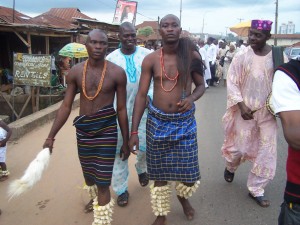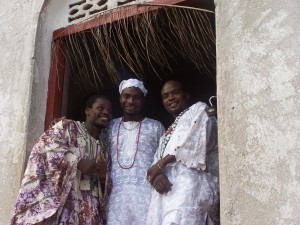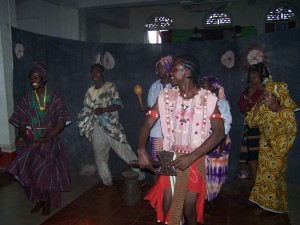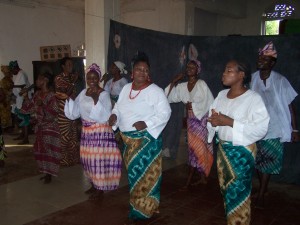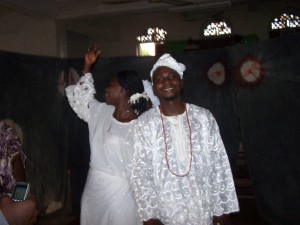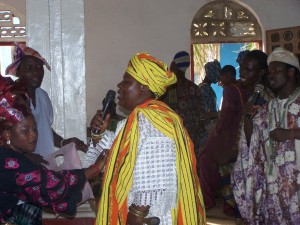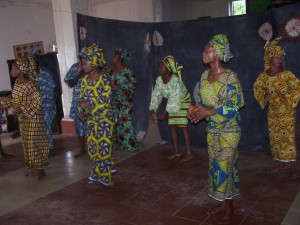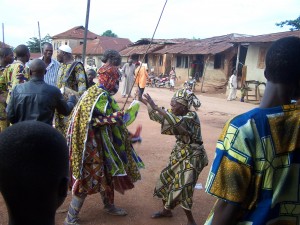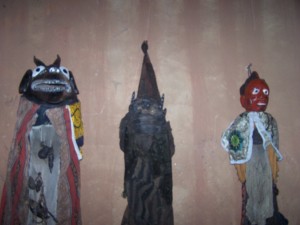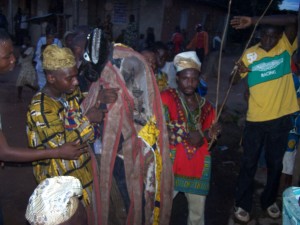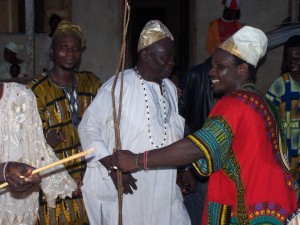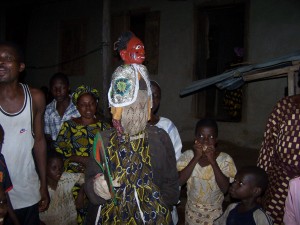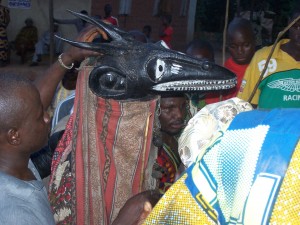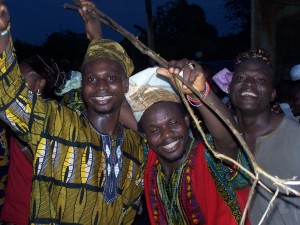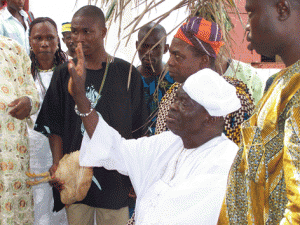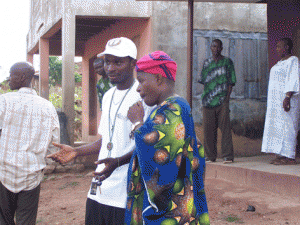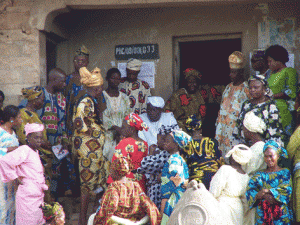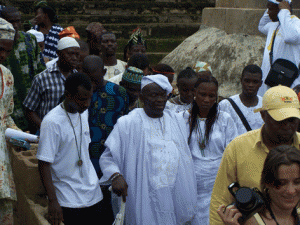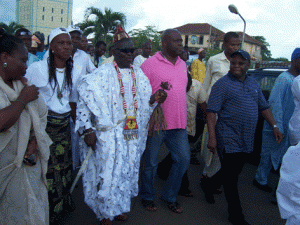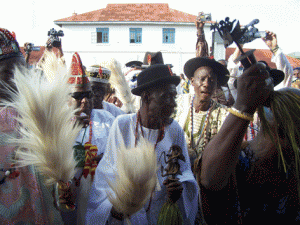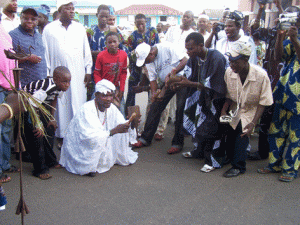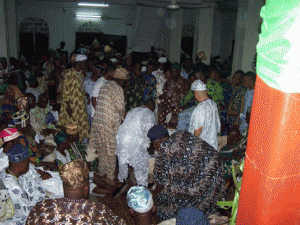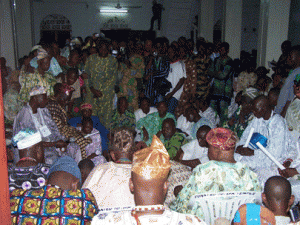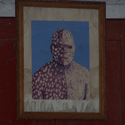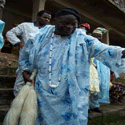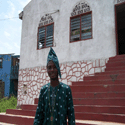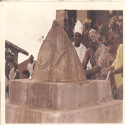This festival is the celebration of Osa and Olokun. The odu Ifa that talks about this festival is Osa Meji. It was divined for Olokun and Osa. Osa and Olokun are the wives of Oduduwa. During this time only Olokun had money Osa was very poor. Olokun is the first wife of Oduduwa and did not have any children. Because of her childlessness she advised Oduduwa to marry another wife. This second wife is Osa.
Both Osa and Olokun were told to make the sacrifice. Only Osa made the sacrifice. Osa was the only one to have children and Olokun remained childless.
During this festival the king calls all his children to wear Agbon and celebrate. Only Osa had the children and Olokun did not have the children to dance in the festival.
They sing:
olomo loni laye
osara mo ko omode o
oye ye ko oyeko.
Because Olokun didn’t have children she was sad and went to the sea. THis is why she left Ile-Ife and went to Eko and changed to the ocean. In the end Orunmila made an extraordinarily large sacrifice for her to have children and at last she had children.
The Agbon festival is celebrated every year and this year was enjoyed and attend by the Araba Agbaye, his children, all the Awos, the Emese, Osara people and their children.
Orishada would like to thank all who attended this year’s Agbon festival and we look forward to next year’s festivities.
Orishada is proud to introduce the newest member of the Orishada family. We are blessed with a new child and pray goodness and prosperity to shower all members of the Orishada community. Ase!
Ododun lari orogbo
Ododun lari arusa
Ododun lari omo obi lori ate
Ododun la o wa ri lode isalaye
Ododun lawo toro lowo olodumare
Won ko ni fi enikeni sa wa ti o
Gbogbo Eyin Ololufe Orishada
Ibanuje koni je ti yin o Ase
E adupe gidigidi lowo gbogbo ololufe wa
Ase ye samo odun asamodun semi o
For a full explanation of your odu Ifa please contact us at Orishada@gmail.com.






